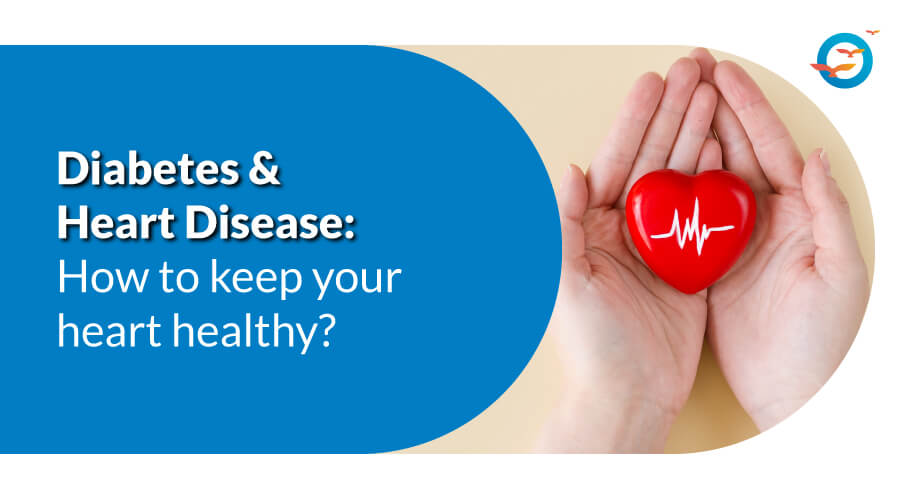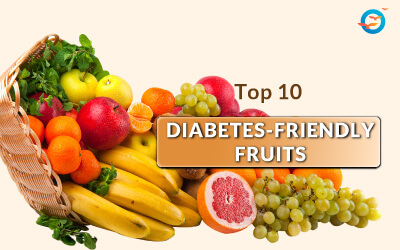Diabetes and heart disease: How to keep your heart healthy?

Heart disease is all too common nowadays. Urbanization and the increasing ubiquity of unhealthy food, sedentary living, and urban convenience play a big role in increasing the risk of heart disease. These same factors are also responsible for another chronic disorder—diabetes. Which is itself a leading cause of heart disease. Statistics show that people with diabetes are two times more likely to suffer from heart disease or have a stroke than those who do not suffer from diabetes.
They are also more likely to suffer heart damage at a younger age. The unfortunate truth is that the longer one has diabetes, the more likely they are to contract heart damage. The good news is that this prognosis is not set in stone. With a few changes one can properly manage blood sugar levels and with a disciplined approach, it is possible to completely reverse diabetes.
FFD has helped over 13000 patients completely reverse their diabetes. You can read their inspirational stories on our website. To register for our online diabetes reversal program—the holistic transformation program—visit us atwww.freedomfromdiabetes.org
Diabetes effect on the heart
Uncontrolled high blood sugar if left unmanaged will over time cause incalculable damage to almost every organ in the body, from the eyes to the feet and the various systems from the circulatory to the digestive.
Blood Pressure.
Bad diets—a key cause of diabetes—raise cholesterol levels; this Low-Density Lipoprotein cholesterol, (LDL) aka “bad” cholesterol, collects on the sides of the arteries forming plaque that causes hardening and narrowing of the arteries. Since extra force is needed to pump blood through these narrowed apertures, the heart pumps harder, causing high blood pressure.
The combination of high blood pressure and diabetes is a definite red flag, as it raises the risk of heart attacks and strokes.
Risk factors:
If you suffer from any of the following, you could be at risk of both diabetes and heart disease
- Smoking
- Obesity
- Sedentary/inactive lifestyle
- Diet rich in saturated/trans fats, cholesterol, salt
- Excessive alcohol consumption
Unfortunately, both high BP and diabetes do not exhibit any symptoms in the initial stages. Regular health checks are the only way to ensure you’re not in any danger. Odema—swelling in the legs due to water collection is one sign that you may be at risk. Fluid can also build up in the lungs making it difficult to breathe. If you notice any such discomfort, seek medical attention as soon as possible.
Take care of your diabetes and your heart will take care of itself
The lifestyle changes that you need to make to control your blood sugar are also good for your heart, so you’re getting two benefits in one go. Here’s how to go about it:
Shift to a heart-healthy diet. This means getting more fruits and veggies. Add beans, legumes, and nuts (pre-soaked in water and peeled) and avoid fats of all kinds. This includes animal milk and dairy products. Cut out all simple carbs; stick to complex carbs high in fiber and micronutrients.
1. Lose weight:
Even a modest weight loss of 7 to 10% can dramatically improve your heart health, lower triglycerides, and lower your blood sugar.
2. Be active:
Physical activity improves your body’s use of glucose, and lowers blood sugar and your risk of heart disease. Try to incorporate both cardio and resistance exercise so you get the best of both worlds
3. Manage stress:
Stress has been found to be a key enabler of high blood pressure and insulin resistance. Meditative activities, like yoga, tai-chi, and simple meditation have been seen to help reduce stress levels sustainably.
4. Watch your ABCs
- A: ensure your A1C levels are below 7 (A1C shows your average blood sugar level over the past three months)
- B: keep your BP below 140/90
- C: manage your cholesterol and triglycerides
- S: Stop smoking
Get help
The best action you can take for your health is to reverse your diabetes. And the easiest way to do this is through our proven Holistic Transformation Program (HTP). More than 12,000 participants—many of them were also suffering from a host of complications from high BP to cardiac issues—have totally reversed their diabetes and are enjoying a transformed, healthy, happy life.
To learn more about our programs or to register for our next batch, visit us at www.freedomfromdiabetes.org/programs.
For more information about diabetes and help in managing your blood sugar, looks us up on Facebook/Instagram and Youtube

